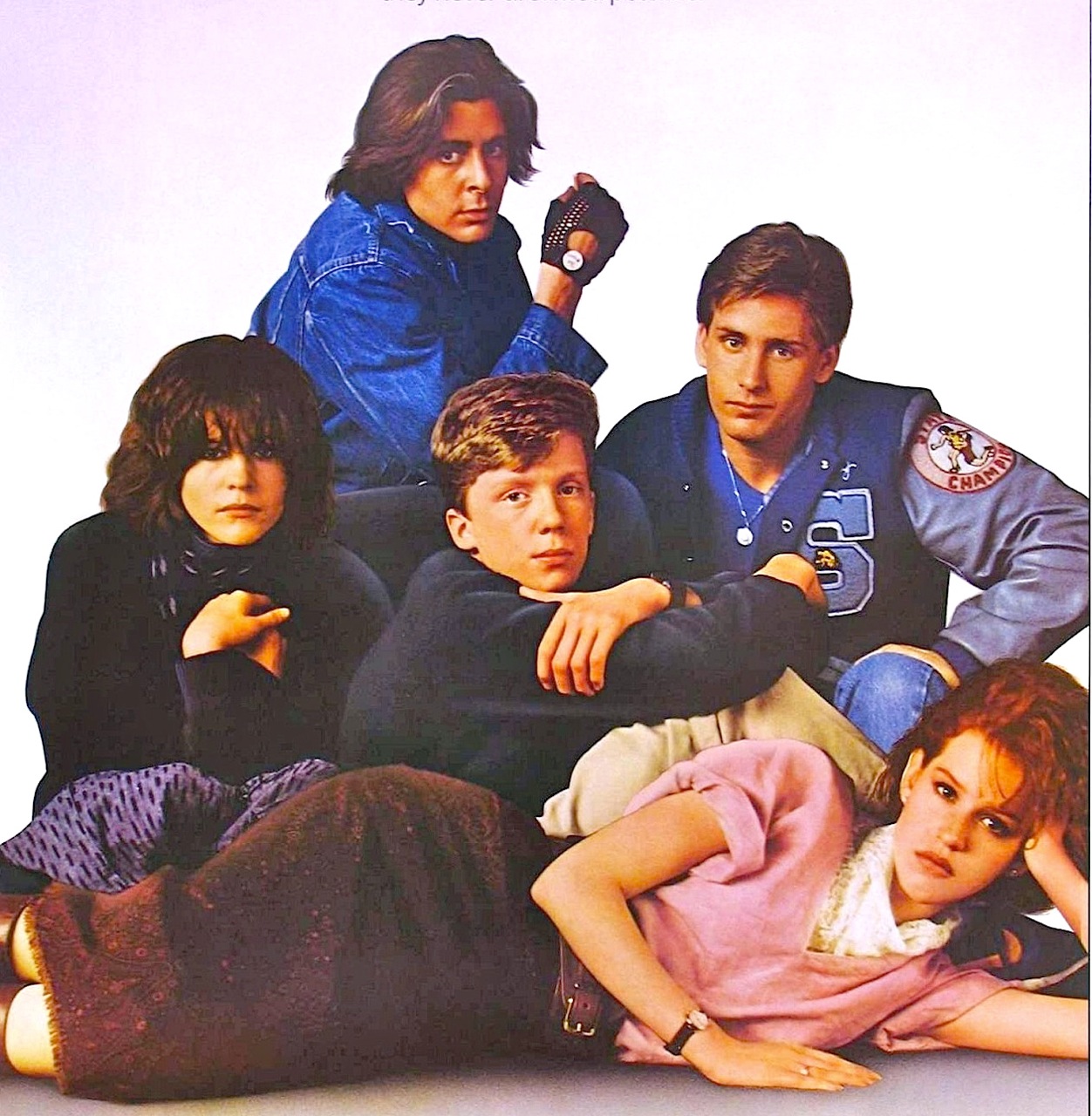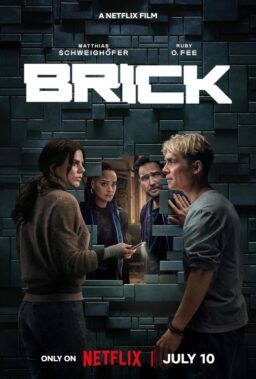All of a sudden, there are movies about teenagers who are ordinary kids. They come as such a relief after all the movies about teenagers who are killers, victims, lust-crazed sex fiends, hookers, punks, sluts and goons. There for a while it looked like half the new teenage movies were going to be ripoffs of two of the sleaziest recent trendsetters at the box office, “Porky’s” and “Friday the 13th.” Teenagers in those movies had fairly limited options: They could look through peepholes into the girls’ shower room, or they could get disemboweled by a faceless monster.
But now consider these two titles: “Sixteen Candles” and “The Breakfast Club.” They are both about fairly typical American teenagers, kids you can like even when you can’t always stand them, kids who are vulnerable and serious and spend infinitely more time speculating about sex than actually experiencing it. Both movies are set near Chicago – which, after “Risky Business,” “Bad Boys,” “My Bodyguard,” “Class” and the upcoming “Streets of Fire,” is becoming the teenage Hollywood.
“Sixteen Candles” will open Friday in Chicago, and “The Breakfast Club” is currently in production in the northern suburbs. “Candles” is about the 16th birthday of Molly Ringwald, whose family totally forgets what day it is, plunging her into the worst day of her life and into a hopeless crush on a good-looking senior boy. “The Breakfast Club” spends a long Saturday in detention class with five students who think they have nothing in common, but find out that they do.
Both movies were written and directed by a 34-year-old Northbrook resident named John Hughes, who is one of the hottest writers in the movie business right now (after “National Lampoon’s Vacation” and “Mr. Mom,” both big box-office hits, even though he feels they fouled up his screenplays).
Hughes turned down a chance to direct “Mr. Mom” because he didn’t want to work in Hollywood “and get all chewed up.” His contract with Universal gives him the right to make all of his movies in Chicago.
“I don’t like being around the people in the movie business,” Hughes was explaining to me the other day. “In Hollywood you spend all of your time having lunch and making deals. Everybody is trying to shoot you down. I like to get my actors out here where we can make our movies in privacy.”
So he has taken over Maine North High School near Des Plaines, which was closed in a consolidation, and turned it into a movie studio.
In the gymnasium, he has constructed the gigantic main set for “The Breakfast Club,” a two-level high school library where his five characters will spend their long day together. Other rooms in the high school are being used as a production office, dressing rooms, makeup rooms and for smaller sound stages.
Almost all of the action takes place on the one set, where five very different kids have to spend all day cooped up together under the eye of the dean. The actors include some of the best young talent in Hollywood today. Emilio Estevez, 22, who plays the hard-driving young jock, starred in “Tex,” “The Outsiders” and “Repo Man.” Anthony Michael Hall, 16, who plays the smart kid, was Chevy Chase’s son in “National Lampoon’s Vacation,” and is the co-star of “Sixteen Candles.” Judd Nelson, 22, who plays the punk, stars in “Fandango” and “Making the Grade,” two other teenage pictures set for release this summer. Molly Ringwald, 16, who plays the lonely rich kid, starred in a stage version of “Annie,” played John Cassavetes’ daughter in “Tempest,” and has the lead in “Sixteen Candles.” And Ally Sheedy, 22, who plays an introspective, goofy stu¬dent, was Sean Penn’s girlfriend in “Bad Boys” and the co-star of “WarGames.”
They have a row of dressing rooms, furnished with couches, chairs, bulletin boards, school books and posters of movies they’ve starred in, and as I talked to them during a break in the shooting I began to pick up those particular vibes you get on the sets of movies that might very well turn out to be special. Some of the crew members of “The Breakfast Club” are calling it “Long Day’s Journey Into Detention,” and a couple of the young actors suggested to me, with a sort of quiet, shy seriousness, that they thought the movie had a chance of being really good.
“Look at what this movie doesn’t have,” said Ally Sheedy. “No high school dance. No chase scene. No naked shower scene. No beer blast. No rumble. It’s about kids who are learning about themselves. It’s like doing a play. It’s an actor’s dream. And it’s an ambitious picture. With a lot of teenage movies, you get the feeling the filmmakers are remembering their own youth. This movie is about right now.”
Anthony Michael Hall, who plays the brainy kid, is “the Geek” in “Sixteen Candles” – the freshman kid with braces on his teeth, who has a wild crush on Molly Ringwald but winds up learning to confide in her.
“What I like about John’s screenplays,” Hall said, “is that, in general, they know exactly what it’s like to be a freshman in high school. For example, instead of making the Geek into some sort of weirdo stereotype, John let me play him pretty straight. All high school kids feel like geeks on occasion. I spent some time at Glenbrook High School, sitting in on the classes for the smartest students, to do research. The stereotype is that the brains are all geeks. Actually, they seemed to be the hippest, when it came to musical tastes. Maybe they weren’t real aware of their attire…”
Hall said he believes the largely teenage audiences for both “Sixteen Candles” and “The Breakfast Club” are ready for movies that take teenagers seriously. “Kids are smart enough to know that most teenage movies are just exploiting them,” he said.
“They’ll respond to a film about teenagers as people. Both of these movies are about the beauty of just growing up. I think teenage girls are especially ready for this kind of movie, after being grossed out by all the sex and violence in most teenage movies.”
John Hughes also is prepared to give teenage audiences credit for more intelligence and taste than Hollywood thinks they have.
“People forget that when you’re 16, you’re probably more serious than you’ll ever be again. You think seriously about the big questions.”
Molly Ringwald, the dark-eyed redhead whose miserable 16th birthday is the centerpiece of “Sixteen Candles,” thought maybe Hughes was right: “You think a lot more about things you may never think about again. You have to block out a lot of the big questions when you grow up, I think, so you can deal with the everyday stuff. And also, when you’re a kid, everything’s real tragic. When something happens to you, it happens deeply.”
I asked Ringwald how she was cast in the lead for “Sixteen Candles,” and she grinned and said that her agent had sent Hughes her photo, and he’d tacked it above his desk and used it for inspiration when he was writing the screenplay. Then he’d cast her to play the part.
“What I like,” she said, “is that the lives of the kids in this movie are not based on sex, but on romance. I think that’s accurate for most teenagers – girls, especially. My character has a crush on this senior named Jake, but I don’t think the first idea in her mind is hopping in bed with him. Most of my friends don’t want to get laid, but to have crushes and stuff. You know.”
Emilio Estevez is the most seasoned of all the cast members. As the son of actor Martin Sheen, he grew up around the movie business, and he not only starred in “Tex” and “The Outsiders” (based on two novels by S. E. Hinton), but he also has bought the option to Hinton’s novel That Was Then, This Is Now. He has written the screenplay himself, and will star in the movie later this year.
“This is a wonderful time to be a young actor,” Estevez said. “I could never have been taken seriously as a writer five or six years ago. Now I can. I think films are growing up with young people. There are so many good young actors around, compared to a few years ago. And the message for Hollywood is: Kids are the basic movie audience, and they want to see movies about themselves.”
An assistant director moved down the high school corridor, calling the actors for their next scene. Hughes was an island of calm as the cameras and lights were set up.
“I love what I’m doing here in Chicago,” he said. “I’m going to do all my movies here. I’ve got two more in pre-production: ‘Weird Science,’ a special-effects picture which will star Anthony Michael Hall in the story of some kids who have a very strange weekend, and ‘Pretty in Pink,’ starring Molly Ringwald as the poorest kid in a rich school. I’ll shoot them right here.
“When ‘Mr. Mom’ came out with what was left of my screenplay, the Tribune referred to me as a ‘former Chicagoan.’ As if, to do anything, I had to leave Chicago. I never left. I worked until I was 29 at the Leo Burnett advertising agency, and then I quit to do this. A lot of my Chicago feeling comes out of Burnett: It’s never pretended to be anywhere else but Chicago, to be proud to be a Chicago agency. This is a working city, where people go to their jobs and raise their kids and live their lives. In Hollywood, I’d be hanging around with a lot of people who don’t have to pay when they go to the movies.”












